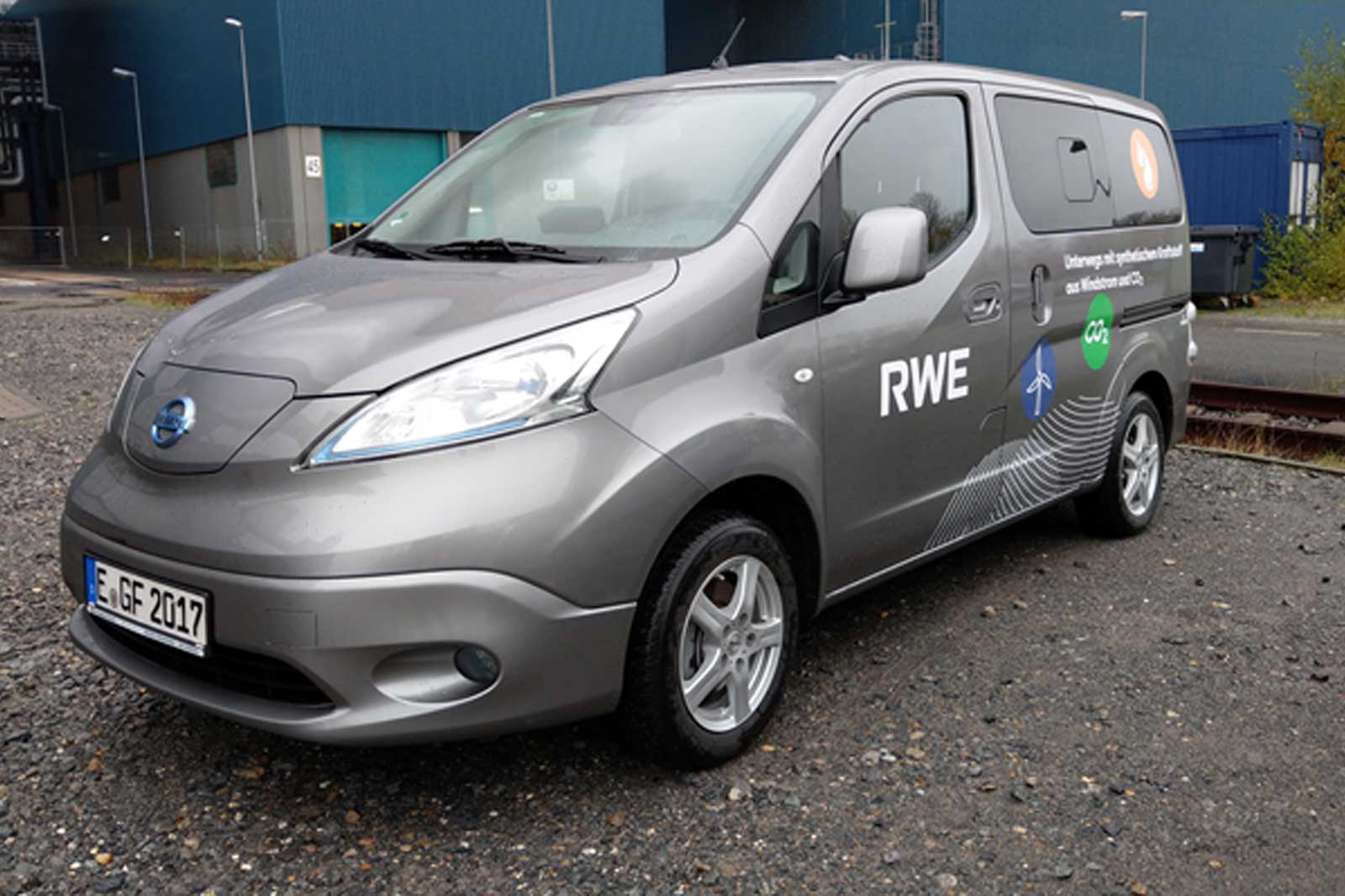By substituting fossil primary energy sources and avoiding CO2 emissions, these projects contribute to climate protection and simultaneously enable the facilities to be better used for renewable electricity generation.
Because these synthetic fuels are also free of sulphur, nitrogen and aromatics, they can also be used to reduce, or entirely avoid, the emission of hazardous substances such as SOx, NOx and soot during combustion in motors and engines. Synthetic fuels are particularly suitable for achieving a relatively fast reduction of emissions in large parts of long-distance and goods traffic (heavy goods, air transport, maritime transport), for which direct electrification is not feasible on technical or economic grounds.
RWE has been working with various partners at its innovation centre in Niederaussem for several years on CCU projects (Carbon Capture and Usage). Projects such as MefCO2, ALIGN-CCUS, OCEAN, LOTER.CO2M, LAUNCH, TAKE-OFF, SCOPE, ECO2Fuel, MeDORA and DRIVE serve to further develop technologies and products on a pilot plant scale and are a prerequisite for the next step - a large-scale CCU demonstration plant. In the ‘North Rhine-Westphalian Power-to-BioJetFuel’ project, the concept of such a demonstration plant was investigated and its feasibility confirmed in principle.
CCU is particularly interesting for the utilisation of biogenic CO2, which is produced, for example, during sewage sludge incineration. Sewage sludge mono-incineration plants are currently being built at RWE's Knapsacker Hügel site, which would be an excellent source of CO2. Together with the green hydrogen produced using renewable energy sources, green CO2 can serve as a starting material for climate-neutral fuels and raw materials and replace substances derived from fossil sources. The development of a demonstration project on an industrial scale at one or more locations in North Rhine-Westphalia is currently being examined with interested potential partners along the value chain.


